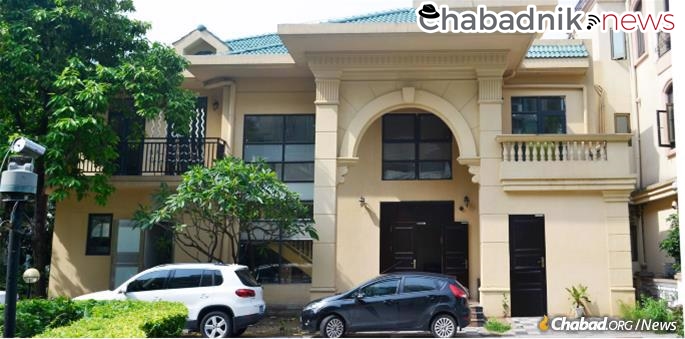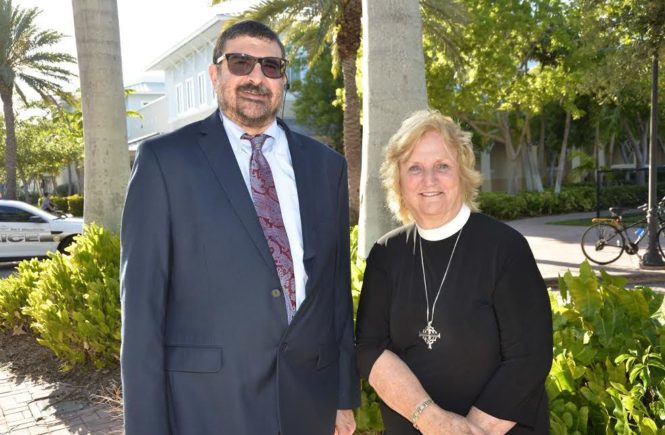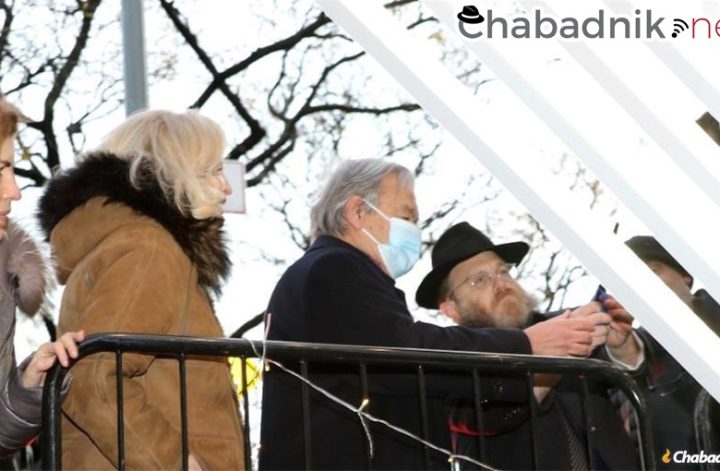A call for help in Shenzhen from an elderly sister in Ohio leads to international effort
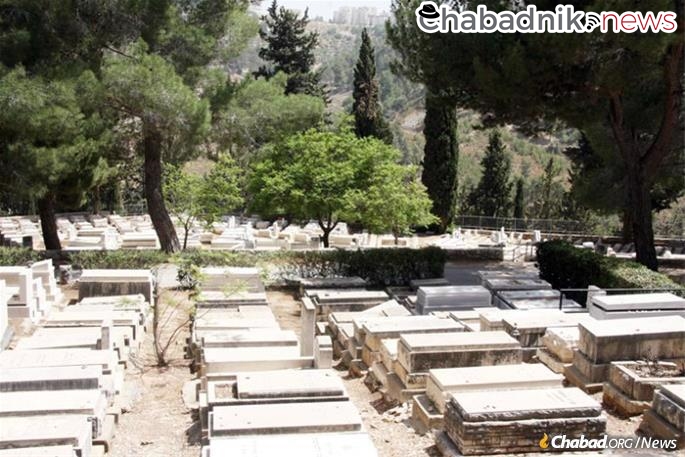
In a lonely hospital bed in bustling Shenzhen, China, lay Sam Briskin, an 85-year-old Holocaust survivor who had no family or friends to care for him. His elder sister, Madeleine Briskin, 89, was desperate for someone on the ground to reach out to him. But where does one turn in Shenzhen?
“I knew the only people in China who would help were the rabbis,” Madeleine Briskin, a professor emeritus at University of Cincinnati’s geology department, told Chabad.org. “Chabad always extends a hand to fellow Jews with loving kindness and charity.”
It was a few weeks before Rosh Hashanah, and preparations for the busy High holiday season were in high-gear at Chabad of Shenzhen. Rabbi Sholom Ber Chazan, co-director of Chabad of Shenzhen with his wife, Henny, answered the call.
“An elderly woman in Ohio was on the phone,” says Chazan, “and she told me about her younger brother who was in hospital here, alone and destitute. Could I reach out to him and provide some assistance?”
Briskin’s call piqued Chazan’s interest, and he asked her about her background. She and her brother grew up in pre-war France and life was happy until the Nazi invasion. Their father disappeared in the early stages of the war, and their mother traveled throughout Europe with her three children. She hid her children’s Jewish identity and put them under the protection of a Christian monastery until the war passed.
After the war, the family emigrated to Israel and then Montreal, Canada. For quite a few years, Madeleine continued to attend church and live as a Christian woman, though eventually became disillusioned by anti-Semitic sentiments within the church. When she settled in Cincinnati in the 1970s, she began to learn more about her Judaism, leading, she says, to a deep admiration for the Rebbe—Rabbi Menachem M. Schneerson, of righteous memory—and the work of Chabad-Lubavitch emissaries around the world.
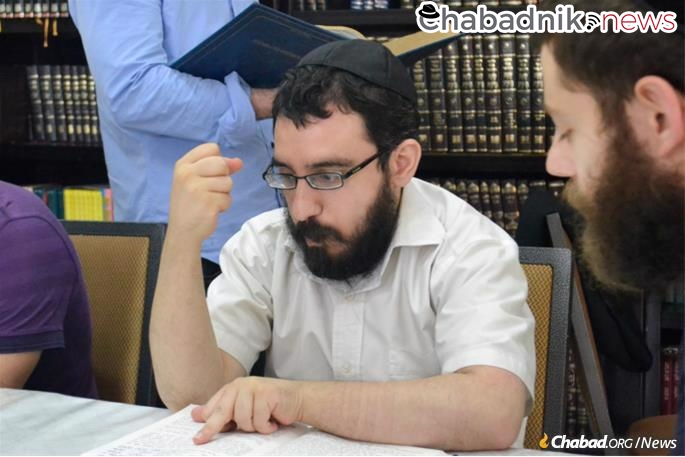
‘No Jew Is a Stranger’
Chazan contacted the hospital. Briskin’s prognosis, they informed him, was not encouraging. “The infection had spread throughout his body, and the treatment he received was very poor, mainly as a result of non-payment of previous medical bills. The medical staff recommended that he immediately be admitted to intensive care.”
The rabbi knew that he needed to step in and ensure that Sam Briskin received optimal care. He called Rabbi Mordechai Avtzon, the veteran head Chabad emissary to China and co-director of Chabad of Hong Kong with his wife, Goldie. No stranger to medical crises and emergencies—as Chabad’s main link in Asia since 1987—Avtzon advised Chazan to instruct the medical staff to provide the utmost care and that Chabad would bear the costs.
Briskin was immediately transferred to the intensive-care unit. But it was too late. “In the middle of the night, I received a phone call that the situation had deteriorated greatly as soon as he was transferred, and unfortunately, he passed away.”
Chazan’s work, however, was just beginning.
In China, as in many countries in the Far East, the usual procedure is to burn the bodies of the dead, something unacceptable in Jewish tradition. “I informed them that cremation could not go ahead and neither could their request for an autopsy,” also prohibited by Jewish law in most circumstances. Conditions in China made local burial impossible, as Chazan explains: “There is no active Jewish cemetery, mainly because it is difficult to ensure it will remain a cemetery for the long-term.”
International repatriation is always a costly ordeal, but the pandemic raised the costs even higher to an estimated minimum of $40,000. “Rabbi Avtzon says little and does a lot,” says Chazan. “He instructed the logistics company responsible for repatriating the body to begin the process of releasing the deceased from the funeral home in China to Israel, and he would secure the funding.”

Avtzon raised the necessary funds singlehandedly, for a Jew he’d never met before. “My parents taught me that commitments should not be made based on what we think we can accomplish, but on what needs to be done,” explains Avtzon. “We are here to help everyone; no Jew is a stranger.”
The rabbis contacted Zaka, the Jerusalem-based international humanitarian organization. The case was given priority by the head of Zaka’s rabbinic board, Rabbi Yaakov Rosa, and Zaka accepted responsibility for handling the bureaucratic issues of bringing the body into Israel, finding a plot of land and burying the deceased according to halachah, Jewish law.
In the end, Shmuel Yosef ben Moshe Briskin—a Holocaust survivor who experienced difficult and bitter times as a child, and died lonely and destitute in China—was laid to rest and buried in the Holy Land. May his memory be for a blessing.
